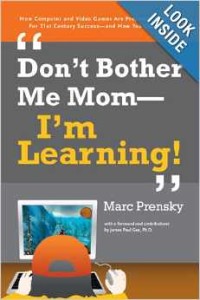
Perhaps the Most Revolutionary and Liberating Book Going Into 2008,
Richard Moore
This book has jumped to the top of the transpartisan list. Together with All Rise and several of the other books on that list, it is an actionable practical formula for restoring the Republic and then spreading participatory democracy and moral capitalism–communal localized capitalism–to the rest of the world in a non-violent information-driven manner.
The “matrix” is the virtual unreality that governments and their corporately-owned media have manufactured to distract, imprison, enslave, and manipulate the majority of the public into dropping out of politics and failing to exercise their right to think, debate, vote, and oversee their representatives. I completely agree with Ron Paul when he says we need to dismantle this insolvent corrupt mess of a government, and reconfigure ourselves back to a Republic of, by, and for We the People.
Key themes in this world interconnectedness instead of separation; community sovereignty instead of federal sovereignty, distributed economics (no absentee landlords) instead of concentrated wealth, transformation and harmonization instead of adversarial, common sense judgments instead of special interest judgments, and finally, the reconstruction of social will to completely overpower, in a non-violent manner, the class war and globalized predatory looting of the commons that the central bankers have wrought on the planet.
This non-violent social transformation, according to the author, includes local empowerment, human liberation, participatory democracy, sensible economics, and cooperation on a global scale for mutual benefit of all.
The elite is fighting back, repressing dissent, even fully-funded logical dissent. ABC is deleting Ron Paul, who is winning his debates, and this is all I need to believe that we are winning. The revolution will not be televised, as Joe Trippi's book explains to well.
This is a transpartisan author who is quite correct when he says that history shows that we have a false manufactured reality being screened everyday, which is completely different from the real world. He also understands (see my list on Natural Capitalism) that predatory imperialism has deliberately kept the Third World poor and genocidal, with the explicit intent of looting their natural resources and getting as many of them as possible to die off–eugenics.
This author provides one of the finest summaries of how predatory capitalism has disenfranchised population, suborned governments, and “exploded the client” as Michael Lewis tells us in more detail in “Liar's Poker” and more recently, John Perkins' “Confessions of an Economic Hit Man.”
He reviews the transition for competitive imperialism to collective imperialism, and has some very elegant detail on how the central banks have managed a succession of global “bait and switch,” successively destroying, at great profit, the gold standard, the petrodollar standard, and now the United States of America. The banks, he tells us, are “the house” and profit regardless of the misfortunes of others, indeed, because of the manufactured misfortunes, wars, stolen aid, botched humanitarian assistance, and so on.
He has two revelations in this book that for me, at least, are explosive. First, that FDR approved eight covert actions against the Japanese with the intent of forcing them to commit the first overt act of war against the US. Second, that Viet-Nam was a known “no-win” war with a known ten-year trajectory and a known 50,000 projected dead. It was used to militarize the US on a grander scale, while enriching a handful of banks and corporations, all as the expense of the individual tax-payer.
He offers fascinating perspectives of how WWI and WWII were deliberately started (I have read other books in this vein, I believe the author's analysis to be on target), and he accuses Henry Kissinger, a known war criminal, of being the cause of the Middle East problems in his constant mis-representation and manipulation of the views of different parties for whom he was supposed to be an honest broker.
Banking, Oil, Covert Action, and Overt Intervention are the four pillars of what Derek Leebaert called “The Fifty Year Wound” and Chalmers Johnson, “Sorrows of Empire.”
He tells us that in the 1970's the US elites concluded that managing consensus democracy was annoyingly complex, so they began moving toward police state capabilities with the use of big lies, among which I include 9-11, never investigated honorably. I believe that Dick Cheney, Rudy Giuliani and Larry Silverstein should be indicted, arrested, investigated, and interrogated with the same techniques they approved for use on others. Drugs and especially marijuana have been used to create a prison complex while the US Government has deliberately, as a covert action, imported drugs into the US for profit, using the drug czar to control the criminal competition. I am told that Ollie North personally supervised the loading of cocaine on to U.S. Navy vessels in Colombia, and this one of many leads I would like to see brought before a Grand Jury.
He tells us that the core elements of the elite plan are five: US-UK control of oil; neoliberal economics; WTO/IMF as economic assassins; police state powers; and the Pentagon as a big stick; on which see General Smedley Butler, “War is a Racket.”
Key point by the author: culture (and social will) are the missing ingredient for activating the bottom-up Epoch B collective leadership and will of We the People.
He says that reform must be all or nothing. I agree. He says that representative democracy is an adversarial system that must be replaced by a fully participatory bottom-up collaborative system. Adversaries take their differences as a given, collaborators take them as a starting point for dialog.
He is at one with the author of “All Rise” and with Reuniting America's transpartisanship vision of dignity for all, and inclusion of all. An opinion can be debated but a person is always valid and not to be denied or excluded.
We can do this. He concludes with the best annotated bibliography I have seen, as relevant to our challenge in 2008.
All Rise: Somebodies, Nobodies, and the Politics of Dignity (Bk Currents)
Confessions of an Economic Hit Man
Liar's Poker: Rising Through the Wreckage on Wall Street
Manufacture of Evil: Ethics, Evolution, and the Industrial System
Society's Breakthrough!: Releasing Essential Wisdom and Virtue in All the People
The Fifty-Year Wound: How America's Cold War Victory Has Shaped Our World
The Sorrows of Empire: Militarism, Secrecy, and the End of the Republic (The American Empire Project)
The Revolution Will Not Be Televised: Democracy, the Internet, and the Overthrow of Everything
War Is a Racket: The Anti-War Classic by America's Most Decorated General, Two Other Anti=Interventionist Tracts, and Photographs from the Horror of It
 Click Here to Vote on Review at Amazon,
Click Here to Vote on Review at Amazon,
on Cover Above to Buy or Read Other Reviews,
I Respond to Comments Here or There













